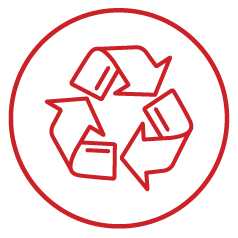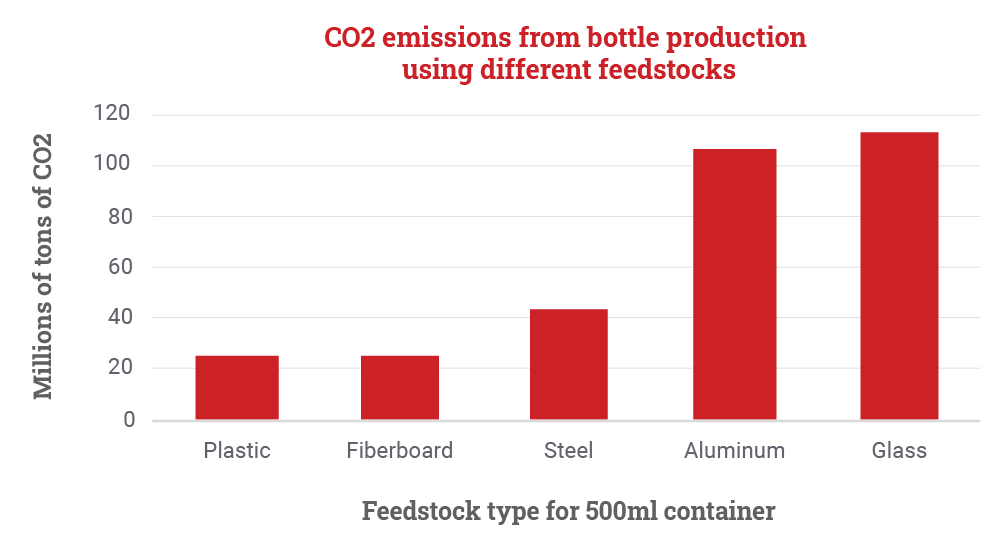Life Cycle Assessments are scientifically sound, vital tools that help us understand the environmental impact of the products we use
Life Cycle Assessments have shown that plastics have the best environmental advantages compared to other materials
What are Life Cycle Assessments?
Life Cycle Assessments are scientific tools that evaluate the environmental impact of a given product from its sourcing to its disposal and end-of-life management. This includes obtaining raw materials to manufacturing consumer and industrial products to recycling and waste management.

Why are Life Cycle Assessments important?
Life Cycle Assessments (LCAs) help us better understand the impacts of the materials that we use every day. One study finds that plastics use less water, fewer resources, and less energy to produce and manufacture compared to alternative materials. Additionally, compared to other materials, like glass and aluminum, plastics reduce emissions and increase fuel efficiency, helping an array of industries meet sustainability goals. LCAs help us understand how we can make the best choices to reduce our environmental footprint every day.
After a consumer has used a product, mechanical and advanced recycling technologies (ARTs), like pyrolysis and chemical recycling, work together to ensure that plastic products are reused to produce new durable and versatile products. LCAs have found that recycling is the most environmentally advantageous way to process post-consumer products.
What have Life Cycle Assessments found?

Emissions and Resources
- A Life Cycle Assessment found that replacing consumer products and packaging with alternatives like glass and aluminum would have nearly four times the environmental impact.
- The Imperial College of London found that if all plastic bottles were replaced with glass, the resulting increased CO2 emissions would be equivalent to the CO2 emissions from about 22 large coal-fired power plants.

Packaging
- A study by the Progressive Bag Alliance found that plastic bags use less energy and emit fewer global warming gases than bags made with paper or recycled fiber.
- A LCA focusing on packaging found that plastic packaging has lower environmental impacts than alternatives when evaluated in North America on a full life cycle basis.

Recycling
- A study carried out by researchers at the Minho University in Portugal found that recycling has the lowest environmental impact on emissions and energy use. Furthermore, plastics generally have environmental and economic benefits over other materials.
- A LCA found that advanced recycling technologies emit 50% less CO2 emissions than other recycling techniques.
A 2020 Imperial College of London study reviewed 73 LCAs and most showed plastic performs better than alternatives from a carbon perspective. Several of those studies found materials used as alternatives to plastic packaging – such as cotton, glass, metal or bioplastics – have significantly higher CO2 impact or water usage.

What is driving LCA research?
Industry is dedicated to ensuring that the most environmentally friendly materials are used, especially as sustainability and climate change goals become more important than ever. LCAs comparing plastics to alternative materials show that plastics are in fact the sustainable choice and without plastics, it will be much harder to reach sustainability goals. Industry will continue to invest in research that is vital to ensuring products are sustainably manufactured.